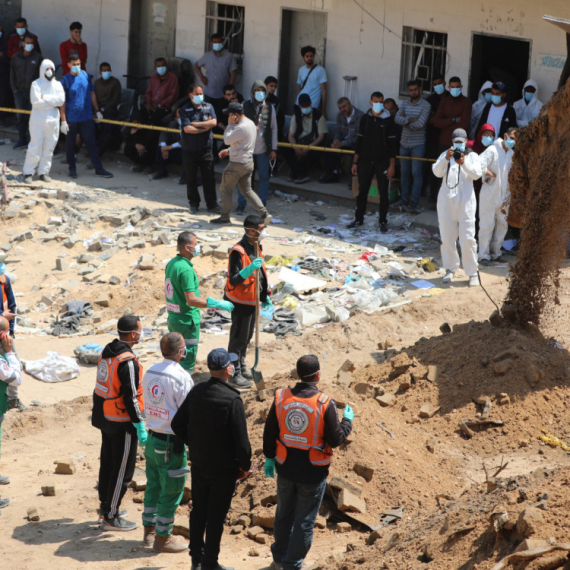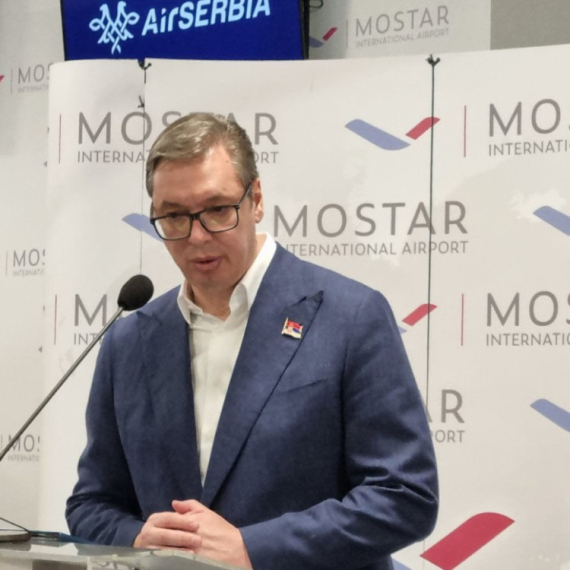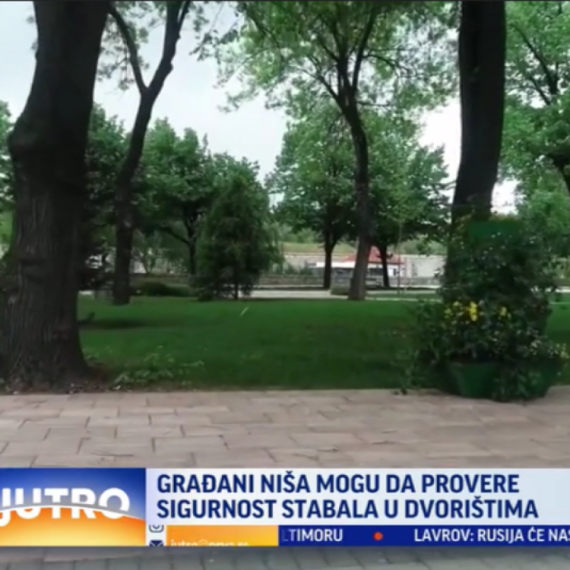B92 looks at politics and crime in Kosovo
B92 TV will this evening air a new episode of its investigative program Re-Akcija (Re-Action), exploring ties between organized crime and politics in Kosovo.
Monday, 04.04.2011.
10:42

B92 TV will this evening air a new episode of its investigative program Re-Akcija (Re-Action), exploring ties between organized crime and politics in Kosovo. Behind the struggle between Belgrade and the Kosovo Albanian authorities related to the recognition of the Kosovo UDI, there are big financial, political and criminal interests from the world of organized crime, the show's reporters found. B92 looks at politics and crime in Kosovo Foreign intelligence agencies say in their reports that organized crime is incorporated into the top political levels in Kosovo. They also claim that Albanian, that is, the Kosovo mafia, is among the strongest in Europe. But at the same time, representatives in international missions in Kosovo coming from the countries whose agencies are filing those reports, have for years kept silent about the criminal activity. The program, which will air at 21:00 CET, explores why the ties between crime and politics in Kosovo went without reaction for years. "The last reports that I monitored said that the Albanian mafia was ranked fifth or sixth, that it had taken over many operations in Europe, for example, prostitution in London was under its control, and these are facts that cannot be denied... and this is now a big security problem that can jeopardize peace and stability in the region," claims Zoran Stijovic, formerly head of the analytics department of the Serbian state security in Kosovo. Although well-developed and present in Europe, organized crime originating in Kosovo caught the attention of the world media only after Council of Europe Rapporteur Dick Marty filed his report last December, accusing ethnic Albanian KLA of trading in organs extracted from kidnapped Serbs, Romas and disloyal Albanians, in 1999 and 2000. This is also when the public learned about reports of U.S. and European intelligence agencies. The reports showed that persons who currently form the Kosovo Albanian political leadership previously headed criminal gangs. Some of the ethnic Albanian politicians in Kosovo accused in this way spoke for the program, including the Kosovo assembly deputy speaker, Dzavit Haliti. Asked why he thought BND, MI6, DEA, CIA, and Italian secret services would manufacture such reports, Haliti said he never saw the documents in question. "Perhaps you have had access to them. I want to believe in facts, not in spy plots, and facts are those that speak the truth and are determined by courts," said he. Stijovic, on the other hand, put the value of the Kosovo people, drug, arms, fuel, and alcohol smuggling operations as well as forced prostitution at several billion euros in the past two decades. "It's a very dangerous mix, the Albanian mafia, corruption, and people that are the so-called political authority in Kosovo, and that is what many do not understand," he said, adding that Serbia has had bad experience in dealing with the threat, describing it as "a very tough and resistant opponent, extreme and dangerous structures".
B92 looks at politics and crime in Kosovo
Foreign intelligence agencies say in their reports that organized crime is incorporated into the top political levels in Kosovo. They also claim that Albanian, that is, the Kosovo mafia, is among the strongest in Europe.But at the same time, representatives in international missions in Kosovo coming from the countries whose agencies are filing those reports, have for years kept silent about the criminal activity.
The program, which will air at 21:00 CET, explores why the ties between crime and politics in Kosovo went without reaction for years.
"The last reports that I monitored said that the Albanian mafia was ranked fifth or sixth, that it had taken over many operations in Europe, for example, prostitution in London was under its control, and these are facts that cannot be denied... and this is now a big security problem that can jeopardize peace and stability in the region," claims Zoran Stijović, formerly head of the analytics department of the Serbian state security in Kosovo.
Although well-developed and present in Europe, organized crime originating in Kosovo caught the attention of the world media only after Council of Europe Rapporteur Dick Marty filed his report last December, accusing ethnic Albanian KLA of trading in organs extracted from kidnapped Serbs, Romas and disloyal Albanians, in 1999 and 2000.
This is also when the public learned about reports of U.S. and European intelligence agencies. The reports showed that persons who currently form the Kosovo Albanian political leadership previously headed criminal gangs.
Some of the ethnic Albanian politicians in Kosovo accused in this way spoke for the program, including the Kosovo assembly deputy speaker, Dzavit Haliti.
Asked why he thought BND, MI6, DEA, CIA, and Italian secret services would manufacture such reports, Haliti said he never saw the documents in question.
"Perhaps you have had access to them. I want to believe in facts, not in spy plots, and facts are those that speak the truth and are determined by courts," said he.
Stijović, on the other hand, put the value of the Kosovo people, drug, arms, fuel, and alcohol smuggling operations as well as forced prostitution at several billion euros in the past two decades.
"It's a very dangerous mix, the Albanian mafia, corruption, and people that are the so-called political authority in Kosovo, and that is what many do not understand," he said, adding that Serbia has had bad experience in dealing with the threat, describing it as "a very tough and resistant opponent, extreme and dangerous structures".
















Komentari 35
Pogledaj komentare